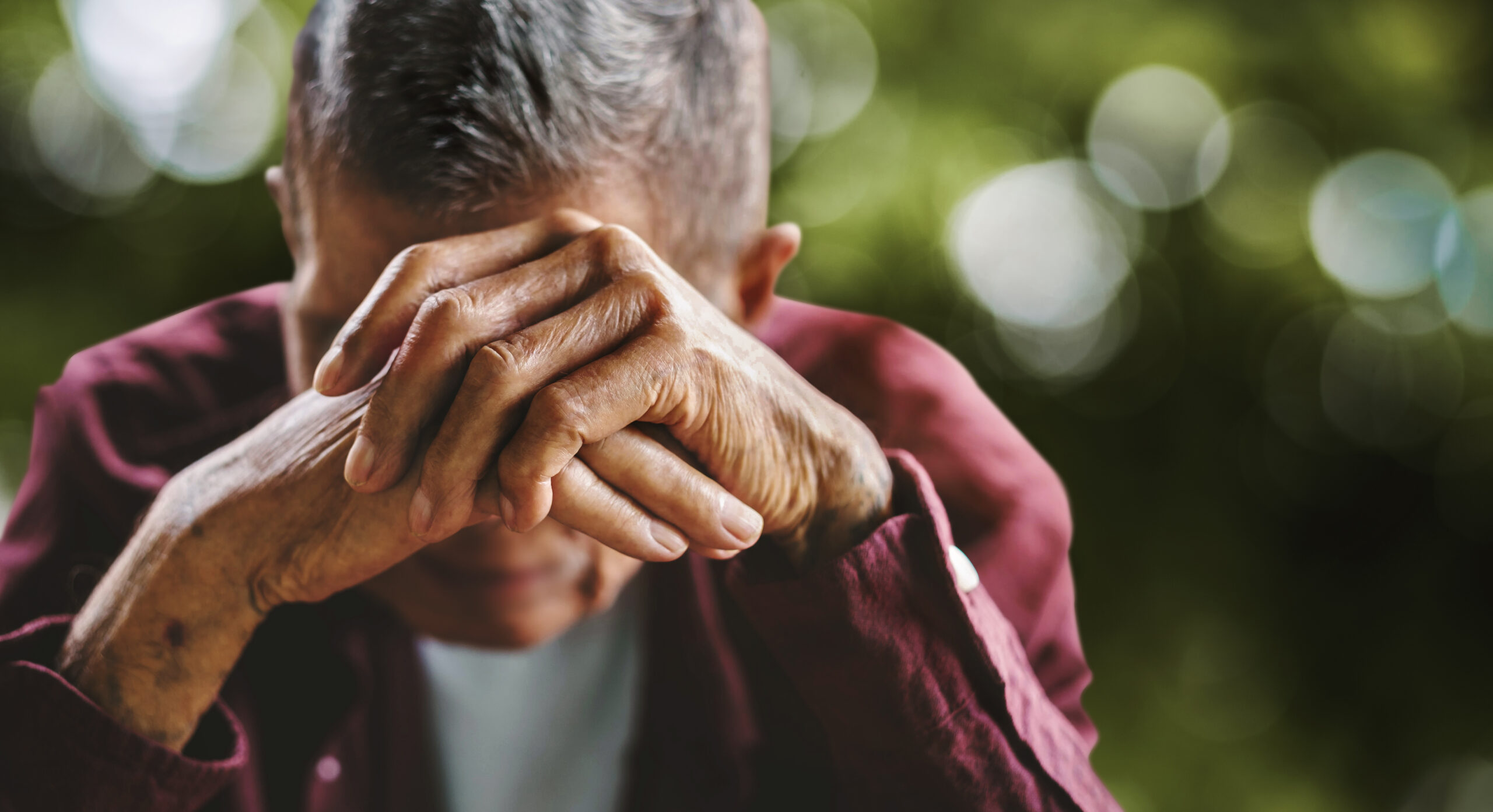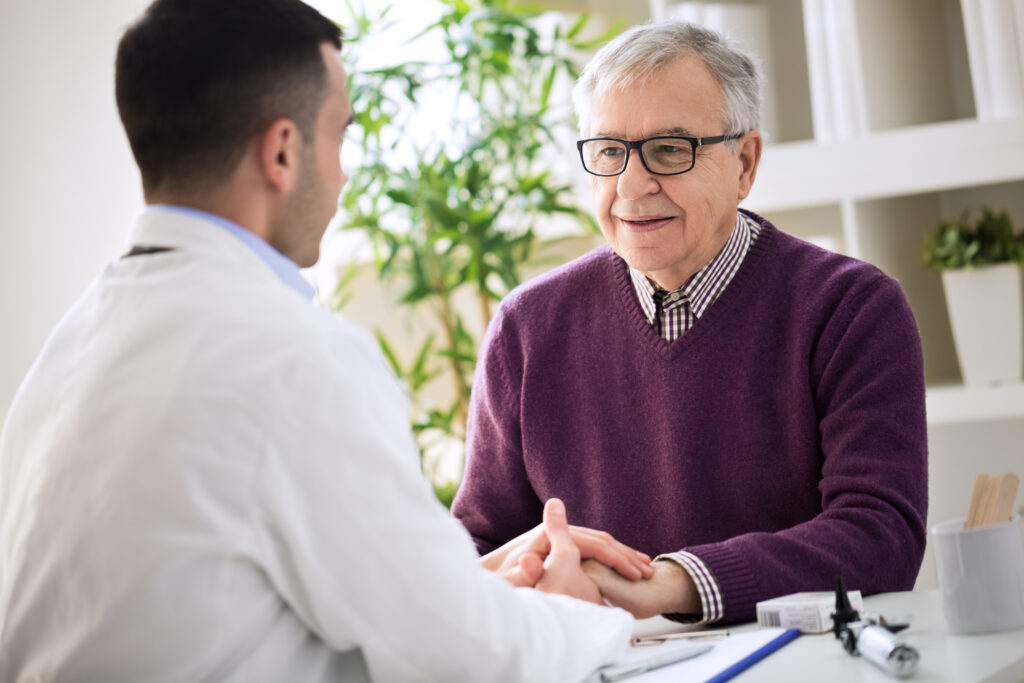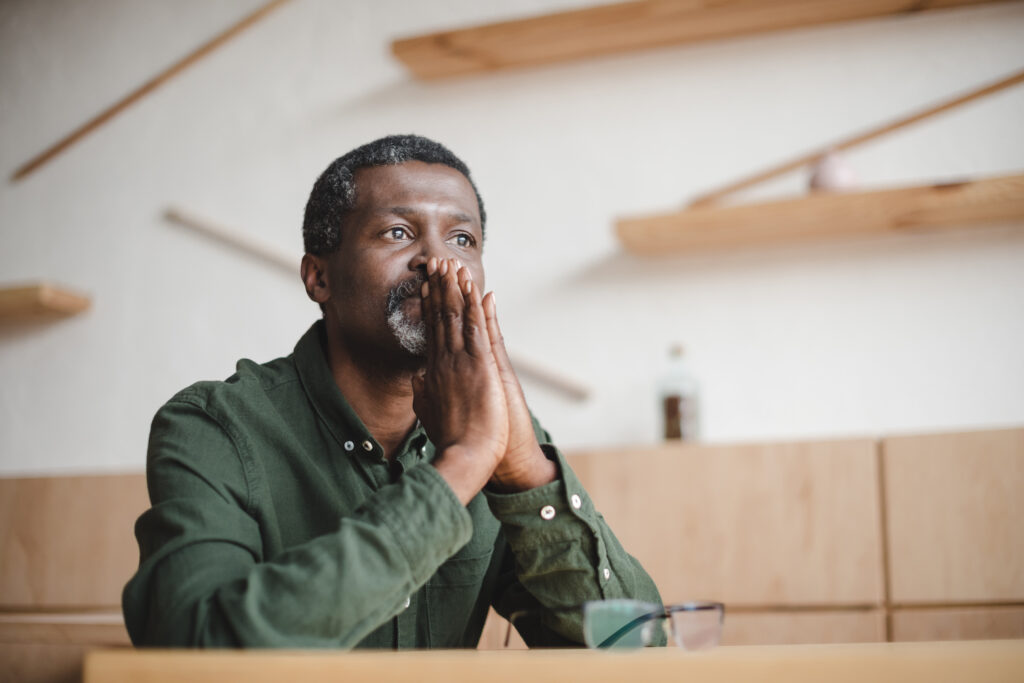

Urinary Urgency: A Sign of Benign Prostatic Hyperplasia
Urinary urgency is a strong, sudden feeling that you have to urinate immediately. It occurs when the pressure in the bladder builds unexpectedly and becomes difficult to hold in your urine. You may feel like you really have to urinate at that moment, yet little comes out. In older men, this is a common symptom of benign prostatic hyperplasia or BPH. If you feel you always need to be close to a bathroom, or you leak before you can get to a bathroom when the urge hits, you may be suffering from BPH. An accurate diagnosis is crucial to ensure that you can continue living a healthy and comfortable life. Our affiliated prostate specialists at American Prostate Centers are here to help you address the uncomfortable symptoms associated with BPH, including urinary urgency.
Symptoms of Urinary Urgency
Symptoms of urinary urgency may be mild or severe, depending on what’s causing you to feel a sudden sensation to urinate. There can be various causes for these symptoms, but in older men, it is commonly a sign of BPH. You may experience a combination of symptoms, including:
- A sudden urge or sensation to urinate that may be difficult to control
- Loss of urine that is unintentional, immediately after feeling the need to urinate
- Urinating frequently, usually seven or more times in 24 hours
- Wake up frequently during the night, more than 2 times, disrupting sleep
Causes of Urinary Urgency
Urinary urgency can be a result of several different medical conditions or it may be due to certain lifestyle habits. Your doctor should ask you questions about your habits and any other related symptoms you may be experiencing. Some of the causes of urinary urgency include:
- Enlarged prostate, or Benign Prostatic Hyperplasia (BPH)
- Excessive fluid intake, especially caffeinated beverages or alcohol
- Urinary tract infection
- Interstitial Cystitis
- Diabetes Type 2
- Certain Medications
- Overactive Bladder
How Does BPH Cause Urinary Urgency?
If you have Benign Prostatic Hyperplasia, the prostate enlarges and presses on the urethra, restricting the flow of urine from the bladder. The bladder may not fully empty because BPH causes the bladder to work harder to release urine. When urine remains in the body, you are likely to need repeated trips to the bathroom to feel relief. The pressure from the enlarged prostate on the urethra causes an increase in bladder sensation (urinary urgency). This sensation can come suddenly, and you may lose control before you can relieve yourself, disrupting your days and nights.

Treatment for Urinary Urgency
Treatment for urinary urgency, as with other urinary issues, depends on the cause of the symptom. When you treat the underlying cause, it should alleviate your symptoms. If your urinary urgency is determined to be caused by Benign Prostatic Hyperplasia, our affiliated specialists at American Prostate Centers are here to help.
Lifestyle Changes
Lifestyle changes can help with urinary urgency. You can make these changes to try to help your symptoms resolve, before seeking treatment. Avoid drinking large amounts of fluid, and monitor your fluid intake, especially coffee, caffeinated beverages, and alcohol, which are diuretics. Get some exercise and eat a healthy diet.
PAE: Minimally Invasive Prostate Treatment
American Prostate Centers is proud to offer Prostate Artery Embolization (PAE) to our patients to address symptoms of BPH. This minimally-invasive treatment does not require anesthesia and is performed in an outpatient setting. The process involves the insertion of a small catheter into the arteries that supply blood flow to the prostate using image-guided technology. Tiny particles are injected to block blood flow to the prostate gland, which causes it to shrink. As the prostate shrinks, less pressure is placed on the urethra, which will help with allowing the bladder to empty normally and take care of many urinary symptoms.

What to Expect from Prostate Artery Embolization
Frequently Asked Questions About Urinary Urgency
Urinary urgency is a feeling of needing to urinate immediately, often with little or no warning. It can be accompanied by frequency (urinating often), nocturia (urinating at night), and in some cases, incontinence (leakage of urine).
While urgency and frequency can be symptoms of prostate cancer, they are more commonly associated with BPH. However, any persistent urinary symptoms should be evaluated by a healthcare professional to rule out serious conditions.
If you experience sudden and severe urgency, pain during urination, blood in the urine, or if symptoms persist for more than a few days, it’s important to consult a healthcare professional for a thorough evaluation.
Our Prostate Specialists
At American Prostate Centers, our affiliated prostate specialists are interventional radiologists in New York. They utilize the latest technology and techniques to deliver positive outcomes to those suffering from the symptoms associated with an enlarged prostate.



